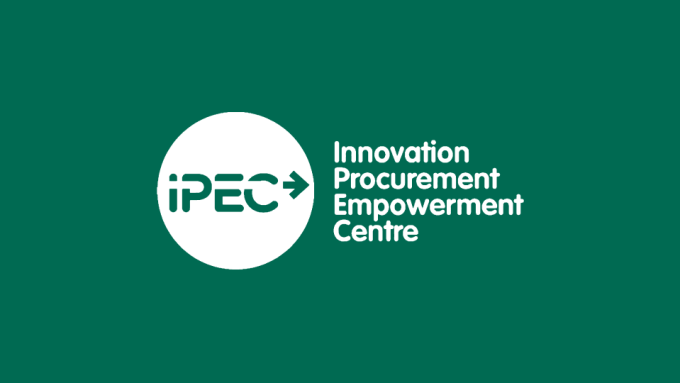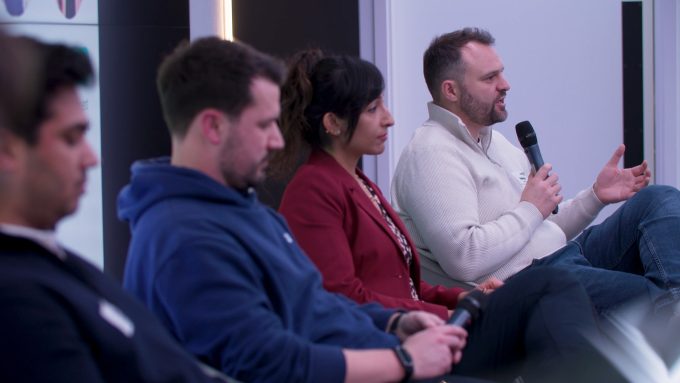
ncat awards funding to innovation projects for enhancing transport accessibility

01.05.2025, London, Connected Places Catapult is excited to be delivering the Scaling Innovation Programme on behalf of the National Centre for Accessible Transport (ncat), which has announced the selection of its first cohort of innovation projects. Launched in October 2024, the programme aims to integrate innovative, future-focused solutions into the transport system to enhance accessibility for disabled people.
The Scaling Innovation Programme was designed to address three key challenges:
- Physical Barriers in the Street: Developing solutions to overcome obstacles that disabled people encounter in the street environment.
- Interactions with Other People: Improving interactions between transport staff, the public, and disabled people.
- Open Call: Inviting ideas that enhance transport accessibility for disabled people beyond the specified challenges.
Projects were selected based on their potential to address these challenges and their scalability, with an emphasis on meaningful involvement with disabled people and a deep understanding of end-user needs.
Three types of projects are being supported—proof of concept, pre-demonstrator, and trial projects—enabling support for new products at all stages of the product development lifecycle. This approach helps identify and remove barriers to adoption and delivers solutions directly to users.
As delivery partner, Connected Places Catapult provides programme participants with tailored business and growth support, peer-to-peer learning, networking, and showcase opportunities.
The selected projects aim to significantly enhance the accessibility of transport systems for disabled people. By addressing physical barriers, improving interactions, and fostering innovative solutions, these projects contribute to a more inclusive and accessible transport system.
"We are incredibly excited about the potential impact of these projects. By supporting innovative solutions that address real-world challenges, we are taking significant steps towards creating a more accessible and inclusive transport system for everyone."Michael Edwards, ncat Board Member
Selected Projects are:
BRISTOL BRAILLE TECHNOLOGY CIC: Bristol Braille Technology is developing tactile maps of British public transport using uniquely British-made Canute Console Braille displays, enabling blind people to better navigate and understand the transport network.
BRUNEL UNIVERSITY LONDON: Brunel University London has developed a proof-of-concept intelligent vehicle that integrates head movement control, eye tracking, Bluetooth connectivity, and ultrasonic obstacle avoidance to enhance accessibility, autonomy, and safety for users with mobility impairments-paving the way for future smart wheelchair applications.
LIVING OPTIONS DEVON: Living Options is developing an accredited Disability Awareness Training module for bus drivers to improve interactions with disabled passengers.
OSTRUM TECH LIMITED: Ostrum Tech Limited's trial aims to help airports and airlines better understand the challenges faced by disabled people, enhance their confidence in disability awareness, and improve support for disabled travellers.
OXFORD BROOKES UNIVERSITY: The School of Engineering at Oxford Brookes University is developing an economical and lightweight power add-on device for manual wheelchairs. It is compact and modular, enabling use in constrained spaces and eliminating range anxiety, empowering users and giving them autonomy
PODARIS LIMITED: Podaris is developing A+PTAL (Accessible Public Transport Access Level), an advanced accessibility metric that helps transport planners and authorities better understand, measure, and improve network accessibility for disabled people through detailed scoring instead of binary assessments.
REACT ACCESSIBILITY LIMITED: React Accessibility is developing an 'at-the-bus-stop' bus request feature, enabling blind and visually impaired passengers to automatically request their bus to stop, making boarding and onward travel easier.
SUPERSMITH LIMITED: Supersmith has developed the 3Scooter to address challenges faced by disabled people in accessing shared micromobility schemes, including issues with incompatible street environments and vehicles. Its design aims to increase accessibility for a wider range of users.
THE DISABILITY POLICY CENTRE LIMITED: The Disability Policy Centre has created a Street Transformation Execution Plan to address barriers to street access for disabled people. Their research will define these barriers to develop a national policy blueprint for accessible streets.
TRANSPORT FOR ALL: Using insights from disabled research participants, Transport for All and Ross Atkin Associates are developing a nationally applicable digital tool that helps design accessible streets by identifying the impact of street features on the diverse needs of disabled people.
VIRTUAL TOUR EXPERTS: Virtual Tour Experts is developing an interactive virtual tour platform, supported by British Sign Language, to help deaf and disabled people confidently navigate Exmouth's transport hubs and public spaces. The platform offers accessible pre-journey planning and intuitive wayfinding tools.
XRAI LIMITED: XRAI has developed an AI speech app that transcribes and translates in 140 languages. The new 'XRAI Rugged' appliance will help passengers access announcements and staff communications in their preferred language, improving accessibility for all.
"We are proud to be part of the ncat Scaling Innovation programme. As a Disabled People's Organisation (DPO), coproduction is at the heart of everything we do. This grant will support us in improving the experience of bus transport for disabled people, while also equipping bus drivers with the knowledge and confidence to welcome all passengers. We're inspired by the brilliant ideas from the other organisations involved in this programme and look forward to seeing the impact we can all make together."Heather Brown, Deputy CEO at Living Options Devon
As individual projects commence ncat will be sharing more details and updates on the ncat project pages.





